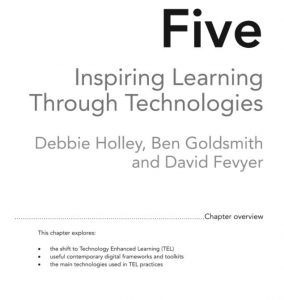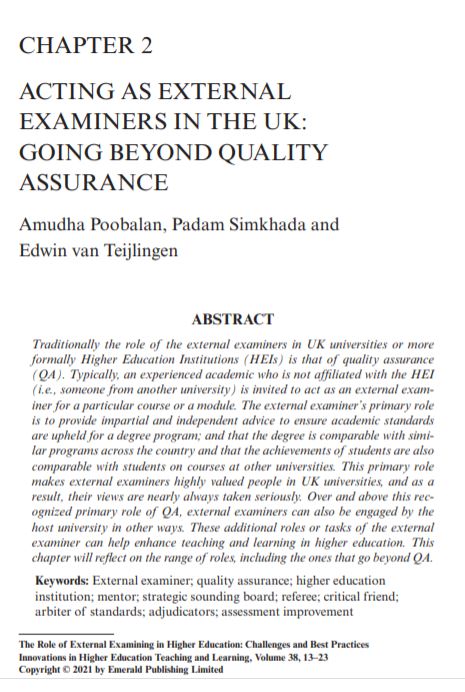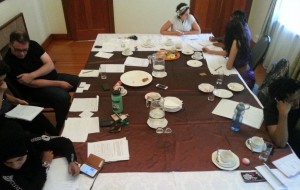 This week saw saw the publication of two book chapters on very different aspects of university education. First, Prof. Debbie Holley, Dr. Ben Goldsmith and Dr. David Fevyer co-authored ‘Inspiring Learning through Technologies’. This is chapter 5 in the newly published second edition of the textbook Enhancing Teaching Practice in Higher Education published by SAGE [1].
This week saw saw the publication of two book chapters on very different aspects of university education. First, Prof. Debbie Holley, Dr. Ben Goldsmith and Dr. David Fevyer co-authored ‘Inspiring Learning through Technologies’. This is chapter 5 in the newly published second edition of the textbook Enhancing Teaching Practice in Higher Education published by SAGE [1]. 
And just a three days ago Emerald Publishing published a chapter on external examining in The Role of External Examining in Higher Education: Challenges and Best Practices. The chapter ‘Acting as External Examiners in the UK: Going Beyond Quality Assurance’ [2] is co-authored by Prof. Edwin van Teijlingen in the Centre for Midwifery, Maternal & Perinatal Health (CMMPH) and FHSS Visiting Facutly Prof. Padam Simkhada (University of Huddersfield) and Dr. Amudha Poobalan (University of Aberdeen).
References:
-
Holley, D., Goldsmith, B., Fevyer, D. (2021) Inspiring Learning through Technologies, In: Pokorny, H., Warren, D. (eds.) Enhancing Teaching Practice in Higher Education (2nd edn), London: SAGE: pp. 107-134.
- Poobalan, A., Simkhada, P. and van Teijlingen, E. (2021) Acting as External Examiners in the UK: Going Beyond Quality Assurance, In: Sengupta, E., Blessinger, P., Ssemwanga, A. and Cozza, B. (eds.) The Role of External Examining in Higher Education: Challenges and Best Practices (Innovations in Higher Education Teaching and Learning, Vol. 38), Emerald Publishing Limited, Bingley, pp. 13-23. https://doi.org/10.1108/S2055-364120210000038002













 Dr. Ashraf cited on ‘Modest Fashion’ in The Guardian
Dr. Ashraf cited on ‘Modest Fashion’ in The Guardian NIHR-funded research launches website
NIHR-funded research launches website Academics write for newspaper in Nepal
Academics write for newspaper in Nepal New paper published on disability in women & girls
New paper published on disability in women & girls Global Consortium for Public Health Research 2025
Global Consortium for Public Health Research 2025 MSCA Postdoctoral Fellowships 2025 Call
MSCA Postdoctoral Fellowships 2025 Call ERC Advanced Grant 2025 Webinar
ERC Advanced Grant 2025 Webinar Horizon Europe Work Programme 2025 Published
Horizon Europe Work Programme 2025 Published Horizon Europe 2025 Work Programme pre-Published
Horizon Europe 2025 Work Programme pre-Published Update on UKRO services
Update on UKRO services European research project exploring use of ‘virtual twins’ to better manage metabolic associated fatty liver disease
European research project exploring use of ‘virtual twins’ to better manage metabolic associated fatty liver disease